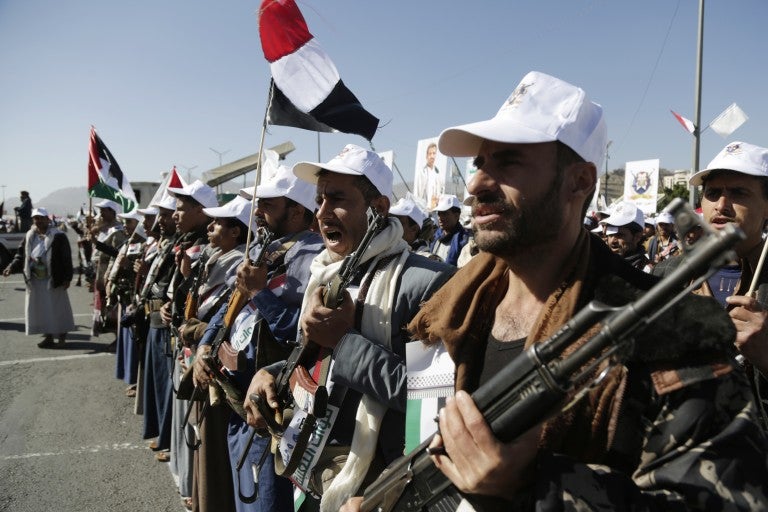July 3, 2025
The reactions that accompany all of Israel's actions are usually strongly emotional. This emotional charge can often be inversely proportional to the justification found in facts and reality. In other words, the more emotional the reaction, the more likely it is to be filled with manipulations, half-truths, or outright falsehoods. This is no different now, amid the open confrontation between Israel and the Islamic Republic of Iran.
How advanced was Iran's nuclear program, really?
Let’s lay out the facts. On June 12, the day before Israel attacked nuclear and military installations of the ayatollahs’ regime, the International Atomic Energy Agency (IAEA)—the UN’s nuclear watchdog—issued its most serious statement in 20 years regarding Iran’s gross violations of the Nuclear Non-Proliferation Treaty (NPT). The agency reported that Iran had repeatedly refused to cooperate with inspectors and failed to provide reliable answers about undeclared nuclear materials and activities at undisclosed sites.
European Union representatives warned that the trajectory of Iran’s nuclear activities and their continued progress posed a serious proliferation risk, stressing that these actions had no credible civilian justification. A joint statement by the U.S., Great Britain, France, and Germany was adopted by 19 countries—many of which frequently criticize Israel. Russia, China, and Burkina Faso opposed the statement, while 11 countries abstained. In response, Tehran announced a further acceleration of its nuclear program.
Why is the ayatollahs' regime a threat to Israel—and to the world?
These events are just one part of a broader context that must be acknowledged for any realistic assessment of the current situation.
The Islamic Republic of Iran is a fundamentalist regime that persecutes its own people—imprisoning, raping, torturing, and murdering anyone who, in the eyes of the Revolutionary Guards, opposes the regime. This can include something as minor as a woman failing to properly cover her hair or another act deemed “immodest.”
The annihilation of the State of Israel is the official state doctrine of the Tehran regime. Supreme Leader Ayatollah Khamenei has described Israel as a “cancerous tumor” that must be removed.
For decades, Iran has built terrorist proxy armies across the Middle East: Hamas in the Gaza Strip, Hezbollah in Lebanon, and the Houthis in Yemen. All are funded, armed, and trained by Iran. All terrorize local populations and regularly attack Israel with the stated goal of destroying it.
The structure of this regional network is no accident. It was designed by Qasem Soleimani, the late commander of Iran’s Quds Force, to form a “ring of fire”—a mechanism for exporting terror and influence throughout the region and beyond.
Ignoring the threat of a nuclear-armed Islamic Republic of Iran is either naïve or a case of deliberate bad faith. Unfortunately, it is often both.
The regime of Bashar al-Assad—whose bloody rule has cost more than 600,000 Syrian lives—has long been supported by both Putin’s Russia and Iran’s Islamic Revolutionary Guard Corps, along with Hezbollah. Speaking of Russia, Iran is now a major supplier of lethal weapons to Putin’s forces in Ukraine. Every Iranian drone intercepted over Kyiv is a reminder that Israel’s enemies are also Ukraine’s enemies. The Islamic Republic is not just a regional problem—it is part of a global axis of evil, alongside Moscow, Pyongyang, and their proxies from Gaza to the Donbas.
No, Iran does not act in good faith.
Examples abound. Many Western leaders—including some who routinely criticize Israel—still acknowledge the need to prevent Iran from acquiring nuclear weapons. And yet, there is no shortage of commentators, experts, politicians, and activists who continue to portray Israel and Prime Minister Benjamin Netanyahu as the only evil on the world stage.
Polish Deputy Foreign Minister Henryka Mościcka-Dendys described Israel’s strike on Iran’s nuclear facilities as “unprovoked,” a surprising and ironic statement given the facts.
In the same article, one can read that “there is no evidence that Iran is close to having nuclear weapons,” and, paradoxically, that “Israel lacks the capability to eliminate Iran’s nuclear program because it is too advanced.” We also hear about Iran’s supposed “goodwill” in engaging in “talks and negotiations.” This is the same “goodwill” that Vladimir Putin expresses in his statements about Ukraine.
Why the Iranian nuclear threat cannot be ignored
Israel has made a costly decision in striking Iranian facilities—a decision not just for its own survival, but for regional and global stability. While the long-term outcome of this conflict remains uncertain, one thing is clear: a world in which Iran, like its allies Russia and North Korea, possesses nuclear weapons would be significantly more dangerous.
Poland, more than most, should understand where appeasement leads. In the 1930s, Europe turned a blind eye until it was too late. Today, too many would rather cling to illusions about Iranian “goodwill” than confront a regime that has never honored its word.
Ignoring the threat of a nuclear-armed Islamic Republic of Iran is either naïve or malicious. Too often, it’s both.
This article was translated from Polish and originally published in Rzeczpospolita.



